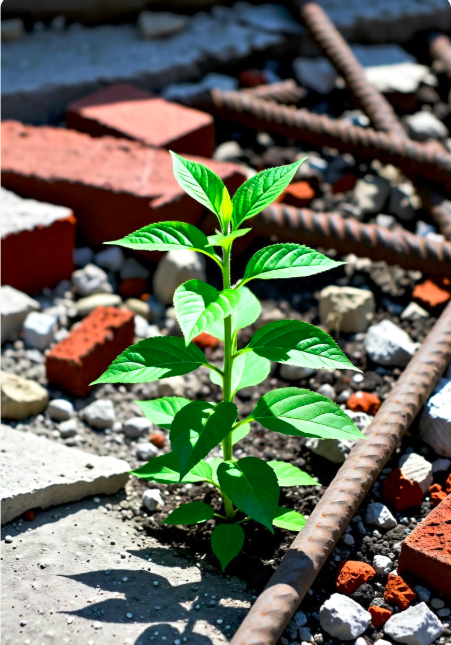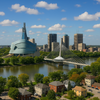
By Les Mottosky
Apocalypse. It's a power-packed word. Even in a world of doom-scrolling and catastrophizing. Our media and device dominated existence sows disagreement as "the new social", but apocalypse has universally agreed upon meaning. Beyond it's inescapable biblical influence, it's broadly understood as collapse on a catastrophic scale.
Apocalypse is dark. It's morbid. And it's nearly everyone's worst case scenario.
But is it an ending or a beginning?
Nukes are a legit threat, yet despite the intensity of conflict between multiple nuclear powers, humans have been resolutely restrained given last century's lessons of Hiroshima, Nagasaki and Chernobyl. In Japan those two locations are thriving modern cities, home to over 1.5 million people. While in Russia, close to 1000 people populate Chernobyl while wildlife flourishes on the remnants.
These examples contain a lesson that can inform other potential forms of collapse; shared or individual.
So what if an ending isn’t a curse, but an opportunity to create what we actually need?
The idea of a Golden Apocalypse suggests that every ending, no matter how sudden, carries within it a promise of renewal. When we perceive our experience as fundamentally benevolent, we begin to notice that even destruction has design. A forest fire clears underbrush so new growth can emerge. A heartbreak forces us back to our deeper self. A business failure humbles a leader into wisdom.
With an expanded worldview, losses are also lessons for improvement.
An apocalypse —personal or collective— isn’t the end of the world; it’s the end of a world. More than an event, it's a feeling; one built on assumptions that no longer serve. From those remains, something truer can appear. If we hold steady to the idea that reality tilts toward renewal and growth, we stop fighting change and start shaping it.
This isn’t endorsing blind optimism or spiritual bypassing. It means looking at the rubble and asking: What does this want me to see? To shed? To rebuild better? Collapse is a catalyst for humans to do what we do better than any living creature on this planet: adapt. It's our superpower. Challenges be damned. We acknowledge their reality and then carry-on more effectively.
When we stop treating chaos as punishment and see it as preparation instead, our fear of endings dissolves. The idea of a Golden Apocalypse becomes not a forecast of doom, but an (uninviting) invitation to evolve. "Yes you're heavy-hearted, hopeless and covered in dust; let's figure out what's next."
Every storm, no matter how dark, leaves behind clearer air. Every rotting apple hides the seeds of a beginning. And because we're nature too, a new story can be as hopeful, healthy and worthwhile as our planet's endless examples of renewal. It's just gonna take some curiosity rolled into significant and sustained effort.
Even the most severe ending is an opportunity to explore the boundaries of our human spirit and the creativity it inspires.
The world we believe to know may burn, but gold is forged in fire.
Maybe it's not hope that springs eternal, but our ability to adapt?
TAGS: #Adaptation As Innovation #Radical Reframe #Cultural Creativity #Courage Is Our Nature #Wisdom In Leadership
Les Mottosky
Adaptation Strategist // I help organizations turn creativity into their competitive advantage by aligning leadership, culture and strategy to unlock adaptive innovations.
Ask about the Clarity Engine Process.








